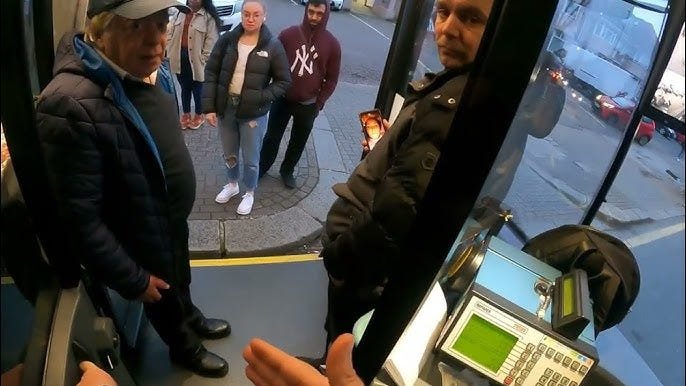Subtotal $0.00
Email :67
Published in:Bus Driver Life Uk
How Passengers Are Abusing London Bus motorists The incompetence of motorists in the Face of Abuse
Authorroot

London’s machine network is one of the largest and most important public transport systems in the world, with over 9,000 motorcars operating on further than 700 routes across the megacity. Every day, hundreds of thousands of commuters calculate on these motorcars to get to work, academy, and other destinations. still, the people who help insure the smooth operation of this system the machine motorists are facing adding situations of abuse, both verbal and physical, from passengers. This issue is a growing concern that has reached intimidating situations in recent times, and the motorists, despite their essential part, are frequently helpless to stop it.
This composition explores how London machine motorists are being abused by passengers, the consequences of this abuse, and why motorists are frequently helpless in these situations. We’ll also look at the rearmost exploration on the issue and how authorities are responding.
The Nature of Abuse
1. Types of Abuse
Abuse faced by machine motorists can take numerous forms. Some of the most common types include

Verbal Abuse Passengers frequently hurl cuts or use aggressive language towards motorists, especially when there are detainments, missed stops, or other nuisances.
Physical Assault Although lower common than verbal abuse, physical violence against motorists has been reported. This can range from being slighted or punched to being demurred or wrangle on.
ethnical Abuse motorists from ethnical nonages are constantly subordinated to racist slurs, a reflection of the megacity’s ongoing ethnical pressures.
Sexual importunity In some cases, womanish machine motorists report being sexually wearied by passengers, which can range from unhappy commentary to more serious advances.
2. Incidents of Abuse
A 2023 report by Transport for London( TfL) revealed that machine motorists in London face further than 1,000 incidents of abuse per month, with verbal abuse account for utmost of the reports.
In a 2022 check, 40 of machine motorists reported having been physically assaulted by passengers at some point in their careers.
The increase in abuse correlates with rising situations of stress and frustration among passengers due to overcrowding, detainments, and other service dislocations.
Why Are Bus motorists Powerless?
Despite being responsible for the safety of passengers and the smooth operation of the machine, London machine motorists are frequently helpless to help abuse or take action against it. The reasons for this incompetence are multifaceted
1. Lack of Support from Authorities
Insufficient Enforcement Bus motorists are frequently told to ignore incidents of abuse, as responding could escalate the situation. This leaves them with little expedient.
Delayed Police Response In cases of physical assault or severe verbal abuse, motorists may be instructed to call the police. still, the response time can be slow, and by the time officers arrive, the abuser may have formerly left.
Absence of Onboard Security numerous motorcars operate without security labor force, leaving the motorist alone to handle potentially dangerous situations.
Limited Protection Despite the growing mindfulness of the issue, some machine drivers have been slow to apply effective safety measures. For illustration, cameras are installed on motorcars to record incidents, but they are n’t always active during off- peak hours or may be defective, leaving motorists without sufficient substantiation to press charges.
2. Mental Health and Well- Being






